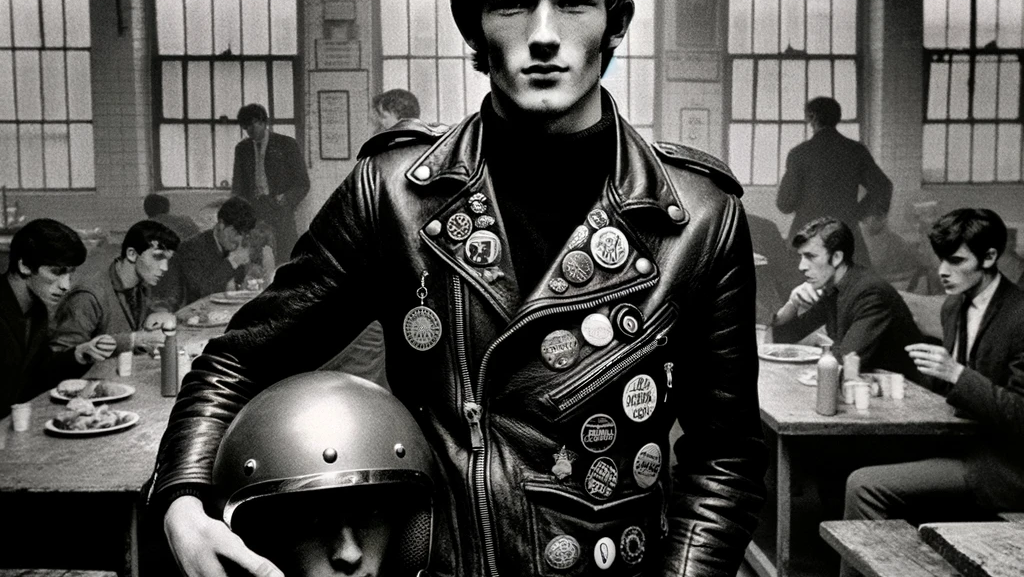Ace Café London isn’t just a place—it’s an institution. From its early days in the 1930s to its role as a biker haven and rock ‘n’ roll hub, Ace Café has seen it all. This blog takes you on a journey through the ages, exploring how this legendary café became a cornerstone of British motorcycling culture.
The Birth of an Icon: 1930s Beginnings
In 1938, Ace Café first opened its doors on London’s North Circular Road. Initially, it was a simple roadside café, catering to truckers and motorists. Little did anyone know, this unassuming café would soon become a cultural landmark. The location was ideal for those traveling long distances, providing a much-needed rest stop with good food and a friendly atmosphere.
Post-War Revival and the Birth of the Biker Culture
After World War II, Britain saw a boom in motorcycling. Young men returning from the war sought excitement and freedom, and motorcycles provided just that. Ace Café quickly became a gathering spot for these enthusiasts. The café’s convenient location and 24-hour service made it the perfect meeting place for bikers.
In the 1950s and 60s, the café’s popularity soared, especially with the rise of the “Ton-Up Boys”—a group of motorcyclists aiming to reach 100 mph on their bikes. The Ace Café became synonymous with speed and rebellion, embodying the spirit of the time.
Rock ‘n’ Roll and the Ace Café
The 1950s also marked the advent of rock ‘n’ roll, and Ace Café was at the heart of it. The café’s jukebox blasted hits from Elvis Presley, Buddy Holly, and other rock legends, drawing a crowd that loved both fast bikes and loud music. This period cemented Ace Café’s reputation as a place where bikers and rock ‘n’ roll enthusiasts could come together.
The Decline and Closure
The swinging sixties brought significant changes, and not all were favorable for the Ace Café. The rise of car culture and new leisure activities led to a decline in the café’s popularity. By 1969, the Ace Café had closed its doors, seemingly for good. It was a sad day for many who had considered it a second home.
A New Beginning: The 1990s Revival
However, the story of Ace Café didn’t end there. In 1994, Mark Wilsmore, a dedicated biker and entrepreneur, spearheaded efforts to revive the café. Recognizing its cultural significance, he organized the Ace Café Reunion, which brought together motorcycling enthusiasts from all over the world. The event’s success spurred the reopening of the café in 1997.
Ace Café Today: A Global Icon
Today, Ace Café London is more than just a café—it’s a global brand. The café hosts numerous events throughout the year, including car and bike meets, live music, and charity events. Its reputation has spread worldwide, with Ace Café franchises opening in places like Beijing, Barcelona, and Orlando.
The café remains a vibrant hub for bikers and rock ‘n’ roll fans alike. It stands as a testament to the enduring appeal of motorcycle culture and the rock ‘n’ roll lifestyle. Visitors can enjoy a slice of history while being part of a thriving community that spans generations.
Key Events and Milestones
- 1938: Ace Café opens on North Circular Road.
- 1940s: Café serves truckers and motorists during and after WWII.
- 1950s-60s: Emergence of the “Ton-Up Boys” and rock ‘n’ roll culture.
- 1969: The café closes due to declining popularity.
- 1994: Mark Wilsmore organizes the first Ace Café Reunion.
- 1997: Ace Café reopens, celebrating its legacy and embracing new generations of enthusiasts.
- 2000s-Present: Expansion into a global brand with international franchises.
Conclusion: The Legacy Lives On
Ace Café London has weathered the storms of change and emerged stronger than ever. Its history is a testament to resilience and the enduring human spirit. From a humble roadside café to a global cultural icon, Ace Café continues to inspire and bring together those who share a passion for motorcycles and rock ‘n’ roll.
So, whether you’re a seasoned biker, a rock ‘n’ roll fan, or someone who appreciates a good story, the Ace Café London remains a place worth visiting—a living piece of history that continues to write its own chapters.

